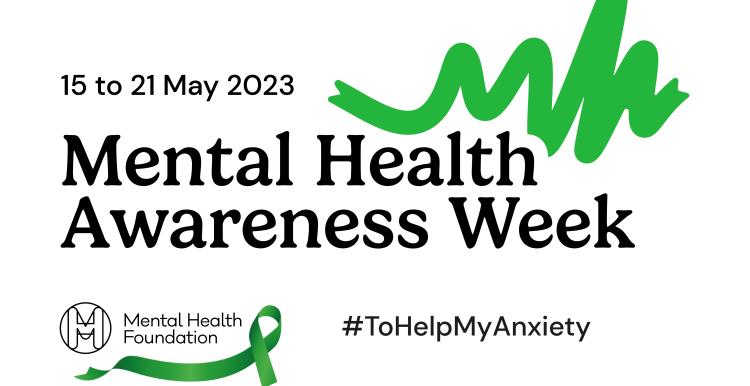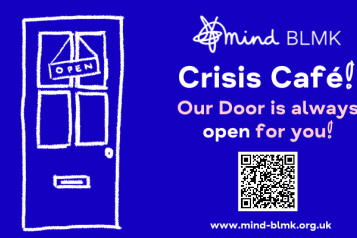Mental health awareness week 15-21 May 2023

Anxiety is a normal emotion in us all, but sometimes it can get out of control and become a mental health problem.
Lots of things can lead to feelings of anxiety, including exam pressures, relationships, starting a new job (or losing one) or other big life events. We can also get anxious when it comes to things to do with money and not being able to meet our basic needs, like heating our home or buying food.
Anxiety is one of the most common mental health problems we can face. In a recent mental health survey carried out by the Mental Health Foundation around stress, anxiety and hopelessness over personal finances, a quarter of adults said they felt so anxious that it stopped them from doing the things they want to do some or all of the time. Six in ten adults feel this way, at least some of the time. On a positive note, anxiety can be made easier to manage.
The Mental Health Foundation are keeping up the pressure to demand change - making sure that improving mental health is a key priority for the government and society as a whole.

What is anxiety?
Anxiety can affect us physically and mentally. If you are feeling anxious, you might notice your heart rate increasing, headaches, loss of appetite, breathlessness or chest pain. (If you are experiencing these symptoms, you should see a healthcare professional to rule out another physical cause). Anxiety might make you feel tense or nervous, find it hard to relax, feel tearful or have problems sleeping and concentrating. Friends or family might notice you are more irritable than usual, or more withdrawn. Or perhaps you seem fine on the outside but feel panicky inside.
You don't need to suffer on your own. There are things that you can do to manage anxiety.
How you can cope with anxiety
The Mental Health Foundation looked at the evidence for what works to manage anxiety and brought together their top recommendations.
Taking action to address specific causes of anxiety can also help – for example, contacting a money advisor, discussing workplace stress with your employer, or seeking support if you are experiencing bullying, harassment or discrimination.
If anxiety is severely affecting your everyday life, you should contact your GP who can offer additional support and help. They may recommend talking therapy (you can refer yourself without a GP appointment), or maybe medication, or possibly both.
Talking to a friend, or spending time with loved ones, is also often a good first step.
Image credit: Priscilla Du Preeze, Unsplash
Want to learn more?
If you want to know more about anxiety, mental health, or this mental health awareness week, visit the Mental Health Foundation website.
Mental health support in Milton Keynes
We have a list of support services available, that can help you to manage a range of mental health issues.

